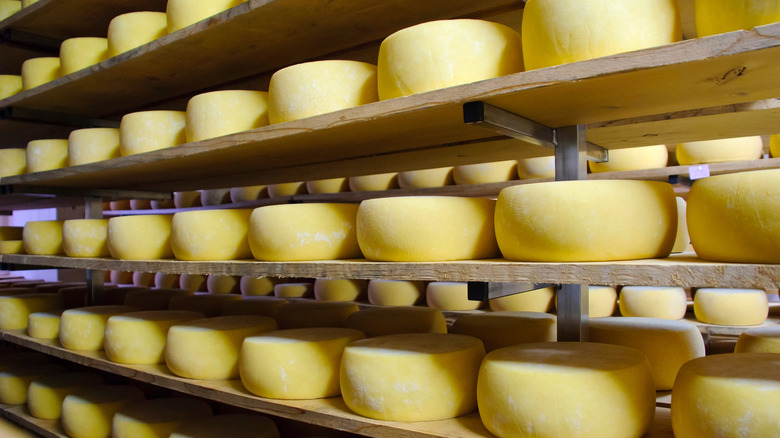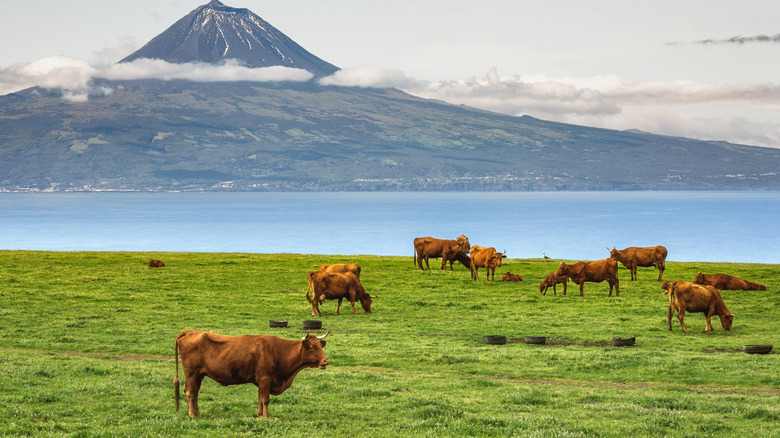This Tiny Portuguese Island Is Home To One Of The Most Unique Cheeses On Earth
What if we told you there was a teeny island in the Atlantic ocean that's nearly constantly shrouded in fog, has twice as many cows as people, and makes a one-of-a-kind cheese? Sounds a little bit like a fairytale, the great setting for a romance novel, or maybe an Anthony Bourdain special, but it's very real, and it's every bit as magical as it sounds.
The island of São Jorge lies 900 miles west of Portugal, a lush landscape with "towering grassy cliffs, ... rich volcanic soil," and a population that consists of mostly cows (via Cheese Connoisseur). The unique climate and abundance of bovines make for an incredibly rare cheese that is only created on the island, aptly named São Jorge cheese. The island's economy is so reliant on the product, that time "is set by when the cows need milking." The Azore island employs traditional cheesemaking methods, which gives it a distinct flavor and texture not present in other cheese.
The cow's diet and lifestyle plays a big role
Described by Cheese Connoisseur as having a "notable ... firm, crumbly texture similar to Cheddar," São Jorge cheese offers a distinct flavor that can't be found elsewhere. The outlet shares that, "as it ages, São Jorge cheese transforms from a slightly sweet, mild flavor to a certain tang and spiciness." Due to the way the curds are packed, the cheese is "buttery yellow" in appearance and "dotted with tiny, irregular eyes."
Free-range cows are welcome to graze where they please, consuming only the wild grasses and herbs on the island. This imparts the cheese with its distinct grassy aroma. Rather than using commercial cultures, whey from the previous day's batch is added to the milk. It is believed by some that this method is part of what lends the cheese its unique flavor. Variations in the herbs and grasses the cows eat are based on the growing seasons, meaning each wheel is unique and the flavors change slightly from batch to batch.
The weather affects the cheese, too, according to Food Insider, with the best cheeses coming from the winter months due to the humidity. This is also why the cheese is aged at room temperature, often at higher elevations — to take full advantage of the island's foggy climate.

